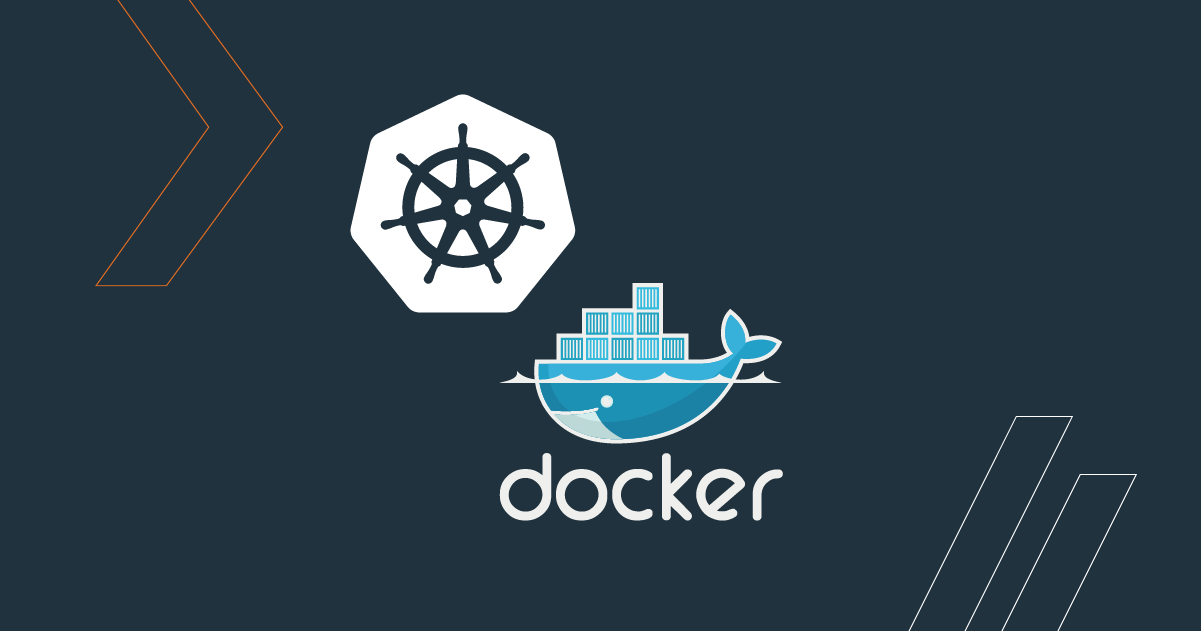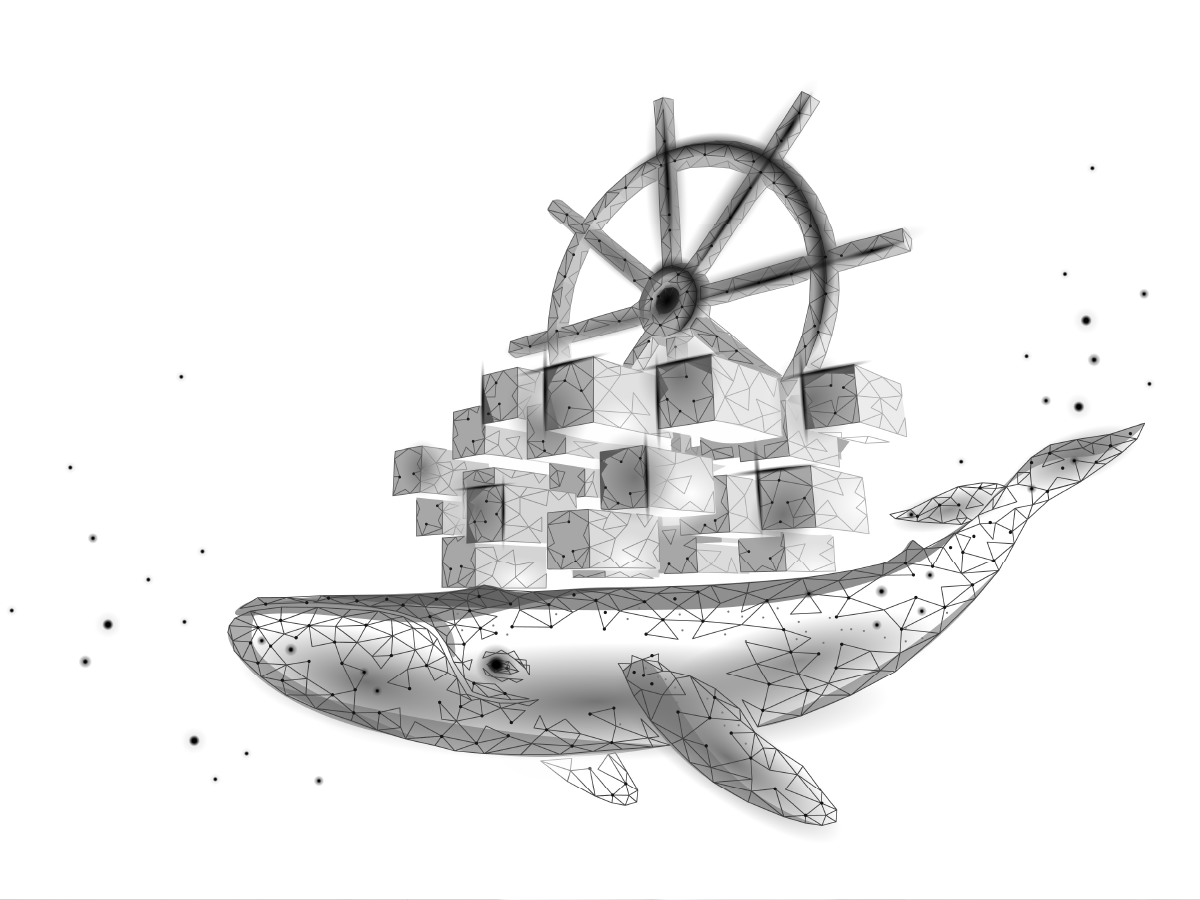Kubernetes vs. Docker is one of the famous oppositions of the IT world. But should these two container handling tools (Kubernetes is a container orchestration tool, while Docker is a platform for creating and running containers) really be put next to each other? Are these technologies direct competitors of one another?
There are many reasons why Docker and Kubernetes are often mentioned in one breath but the question that may arise here is: why not use them both?
In this article, we’ll shed light on the differences, similarities, as well as interconnections between Kubernetes and Docker. It’s definitely good to know some of their ins and outs, as well as the interdependencies of these technologies, to make the best use of them.
Table of contents:
- Kubernetes & Docker containers in brief
- Docker vs. Kubernetes – comparison
- Kubernetes & Docker: why not both?
- Docker & Kubernetes wrapped up
Kubernetes & Docker containers in brief
Kubernetes and Docker are parts of the famous duo used for automating the process of containers’ deployment and maintenance. Although they’ve been in the market for less than a decade, they have already made a big difference when it comes to workload orchestration.
Kubernetes in a nutshell
Kubernetes, also referred to as K8s, calls itself „an open-source system for automating deployment, scaling, and management of containerized applications”, workloads and services. This portable container handling tool was initially released in 2014 by Google, but the project was subsequently taken over by the Cloud Native Computing Foundation.
This framework is meant for running distributed systems, supporting various applications and workloads, and providing building blocks for creating developer platforms but not for building applications. However, applications that are able to run in multiple containers, are proper for running on Kubernetes as well.
Docker – the basics
Docker – understood as a set of PaaS products offering containerization services – was initially released about a year prior to Kubernetes, in 2013. The organization that stands behind its development is Docker, Inc.
A Docker container can be called a „standard unit of software that packages up code and all its dependencies so the application runs quickly and reliably from one computing environment to another”. A Docker container image is a standalone package of software that covers code, Docker container runtime, as well as various tools and libraries needed for a developer to run an application.
Docker containers (which run on Docker Engine) are used for building, sharing, and running applications. Separating application dependencies from infrastructure – in line with developers’ requirements and needs – is what makes Docker technology very useful.
One of the basic modes Docker can be used in is Docker Swarm which is built into the Docker Engine. It provides swarm services that, contrary to standalone containers, can modify a service’s configuration without having to restart the service manually.
Another interesting functionality is Docker Hub – a huge repository of container images – which is a major service for finding, storing, and sharing container images within various communities of developers who build and distribute their code in containers. In turn, Docker Compose helps define and share multi-container applications.
Docker vs. Kubernetes – comparison
Docker Swarm and Kubernetes are both developer tools meant for automating the process of managing the application microservices, more lightweight than virtual machines. They are both written in the Go programming language and offer vast open-source community support. The latter, however, is more extensive in the case of Kubernetes; there are also KubeCon conferences organized.
Also, Kubernetes is more complex, difficult to learn, and not that easy to install or deploy, while Docker offers a smoother learning curve and is easier to start with, with Docker containers created and managed effortlessly. Moreover, it is well-fitted to Agile technologies and gives the possibility to move containerized apps across various environments or operating systems. However, Docker is not that effective when it comes to automation capabilities.
In turn, Kubernetes is way more powerful, feature-rich, and flexible. It offers many useful functionalities, like load balancing, service recovery, storage orchestration, horizontal scalability, and batch execution.
All these advantages, as well as great availability (delivered within on-premises and cloud models, by all major cloud providers), make it commonly used and widely adopted.
KUBERNETES | DOCKER SWARM | |
| Purpose of use | Container orchestration tool | Container orchestration tool |
| Language it is written in | Go | Go |
| Ease of learning and use | More complex and difficult to learn, install, and deploy | Easier to learn and start with
|
| Strengths | Powerful, feature-rich, available, flexible, scalable, self-healing, and perfect for more complex use cases | Available, agile, and versatile, with the possibility to move containerized apps across systems and environments |
Weaknesses
| Requires experienced developers to handle; transitioning to Kubernetes can be difficult | Less effective in terms of automation capabilities; limited functionality
|
Community support
| Extensive
| Smaller but vast enough
|
Kubernetes & Docker: why not both?
While many people are trying to trace differences and similarities between Kubernetes and Docker, some argue that this is, in fact, pointless, and one doesn’t have to choose between the two solutions. In turn, these container technologies should be treated as complementary and meant for slightly different purposes, needs, and use cases.
In general, Docker Swarm may be a better option when the number of containers in stock is smaller, and Kubernetes may handle more numerous and more complex use cases. Due to its complexity, experienced developers or managed service providers are usually needed to handle Kubernetes container management.
While it may not be immediately obvious, the truth is that, beneath the surface, Kubernetes and Docker often work together hand in hand. It is so, for instance, in the case of Docker Desktop – an application for macOS and Windows environments that enables users to build and share containerized applications and microservices.
The major benefit of using both technologies together is that in situations of increased business demand Kubernetes can provide orchestration of Docker-provided small, isolated, swift containers applications are packed in, offering automatic deployment, as well as high availability, and giving this combo a boost by enriching it with the above mentioned powerful features.
Docker & Kubernetes wrapped up
Depending on how we look at the two, the difference between Docker and Kubernetes is significant on one side but of lesser importance on the other. Anyway, this issue is rather secondary as both technologies are just perfect to complement each other.
While workload orchestration and running containers is a task of ever-increasing importance, container orchestration platforms like Kubernetes are being used by more and more developers. And with Docker container images on board, productivity and time-effectiveness can be increased greatly.
It is very reasonable, then, to use both technologies simultaneously – and the newer Docker versions are even integrated with Kubernetes by default. The difference between Kubernetes and Docker is not something crucial, as they are not direct competitors; instead, together they can make a truly powerful combo.
Interested in applying Docker & Kubernetes in your projects? Contact Codete now for guidance on using these technologies right and making the most of them in your project

